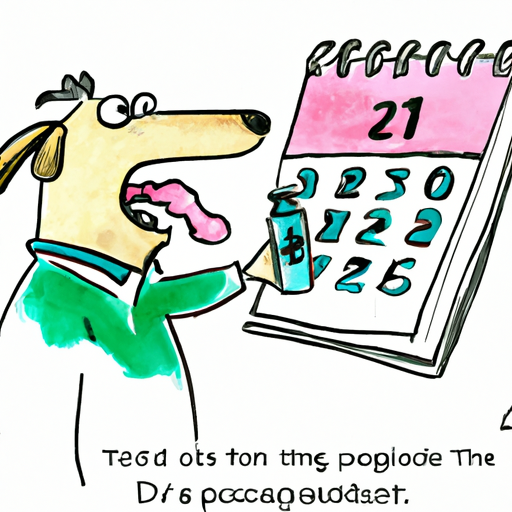Understanding the Importance of Dental Hygiene in Dogs
When it comes to caring for your dog, their dental health may not be the first thing that comes to mind. However, a healthy set of teeth is as vital for your dog as it is for you. Ignoring their dental hygiene can lead to a multitude of problems, including bad breath, gum disease, tooth loss, and even serious systemic health issues that can affect the heart, liver, and kidneys. As a caregiver, ensuring your dog’s dental hygiene is a key aspect of their overall health and wellbeing.
Recognizing the Recommended Frequency of Brushing
Ideally, you should brush your dog’s teeth every day, just like you brush your own. However, we understand that this may not always be practical due to various reasons. At a bare minimum, aim to brush your dog’s teeth at least 3 times a week. This frequency is typically sufficient to prevent tartar build-up and maintain good oral health.
| Frequency | Effectiveness |
|---|---|
| Daily | Ideal |
| 3 times a week | Minimum |
| Once a week | Ineffective |
Tips for Effective Dog Teeth Brushing
-
Choose the Right Tools: Make sure to use a toothbrush designed for dogs and a pet-friendly toothpaste. Human toothpaste can upset your dog’s stomach.
-
Create a Routine: Dogs thrive on routine. By brushing their teeth at the same time each day, your dog will come to anticipate the activity, making the process easier for both of you.
-
Use Positive Reinforcement: Reward your dog with praise, petting, or a small, healthy treat after each brushing session. This will help them associate teeth brushing with positive experiences.
Dealing with Resistance
Some dogs may resist having their teeth brushed. This is normal, especially when they are not used to it. To help them get accustomed to the process:
- Start with short sessions and gradually increase the time as your dog becomes more comfortable.
- Let them taste the toothpaste first. Choose a flavor that your dog likes, such as chicken or beef.
- Be gentle and patient. If your dog becomes overly stressed, stop and try again later.
Alternatives to Brushing
If brushing your dog’s teeth proves too challenging, there are alternatives you can consider:
- Dental chews or toys: These are designed to help control plaque and tartar.
- Dental diets: Some dog foods are formulated to promote oral health.
- Professional cleanings: Veterinarians can perform deep dental cleanings under anesthesia.
Frequently Asked Questions
Q: Can I use human toothpaste to brush my dog’s teeth?
A: No, human toothpaste contains ingredients that can be harmful to dogs.
Q: How can I tell if my dog has dental problems?
A: Signs of dental problems in dogs include bad breath, difficulty eating, red or swollen gums, and excessive drooling.
Q: How often should a professional clean my dog’s teeth?
A: This depends on your dog’s oral health. Some dogs may need professional cleanings annually, while others may need it more or less frequently. Consult your vet for the best advice.



